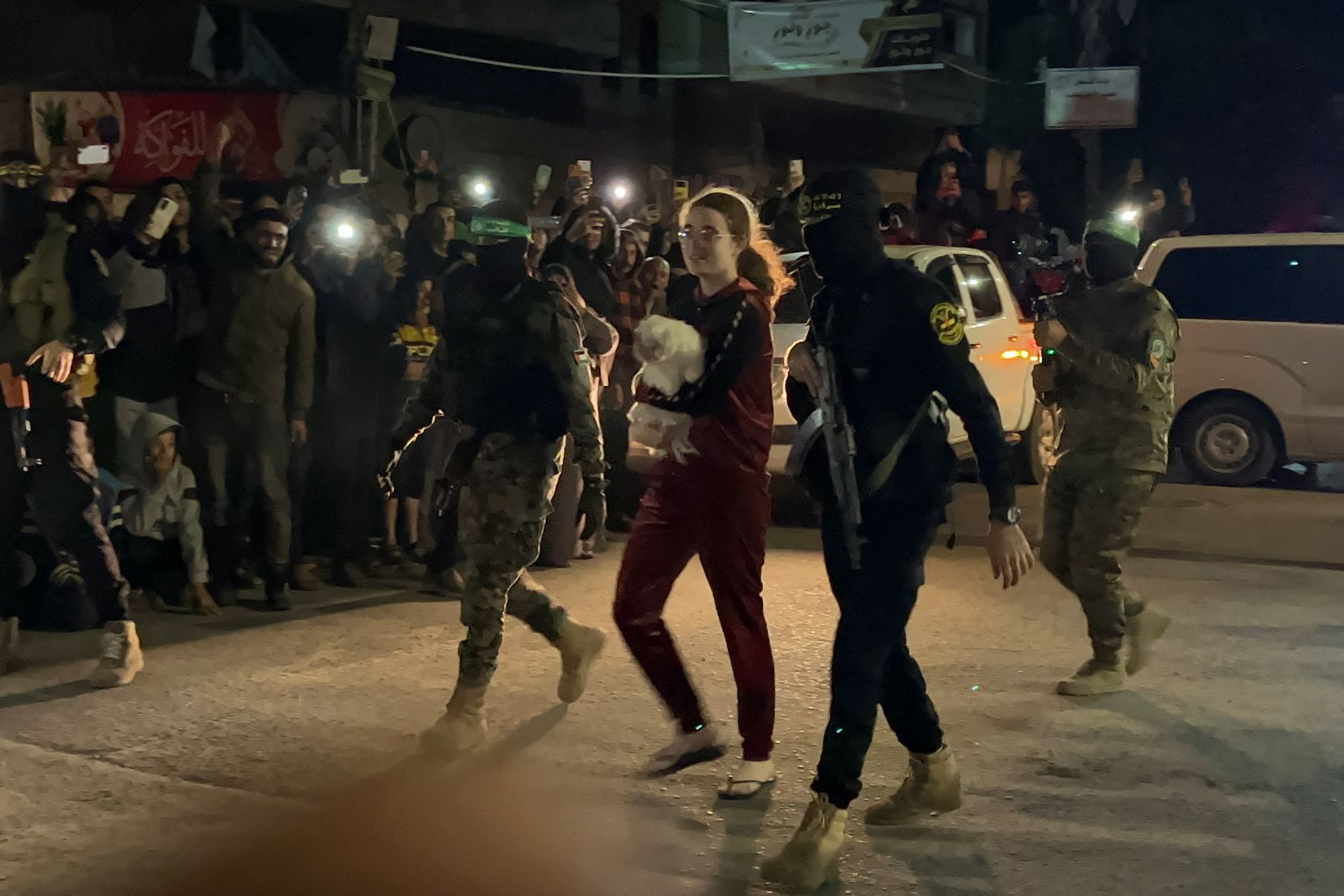Whio
Families of released Israeli hostages describe what Hamas captivity was like for loved ones
A.Wilson3 months ago
Twelve more hostages — 10 Israelis and two Thai nationals — were released from Hamas captivity on Tuesday in exchange for 30 Palestinian women and minors released from Israeli prisons. The swap comes as part of an extended truce between Israel and Hamas, which is set to end at the end of Wednesday. "The Government of Israel is committed to the return of all of the hostages and missing," Israeli Prime Minister Benjamin Netanyahu said in a post on X , along with the list of 10 of its citizens who were freed on Tuesday. As soon as the truce is over, Israel has indicated that it intends to resume fighting in order to ultimately end Hamas's rule in Gaza. There are now a total of 85 hostages who have been released out of the roughly 240 hostages who were kidnapped by Hamas since Oct. 7 when the militant group unleashed a brutal attack on Israel that killed about 1,200 people. One Israeli Defense Forces soldier was also rescued by the IDF in late October. Most of the freed hostages appear to be in stable physical condition, the Associated Press reports . But family members of the released hostages have started to share the experiences their loved ones have had to endure while they were held in captivity.‘She is the same, but not the same’ Margalit Moses, a 78-year-old cancer survivor with serious health issues, was one of the hostages released by Hamas last Friday. Her niece, Efrat Machikawa, told CBS News that Moses was taken hostage from Kibbutz Nir Oz near the Gaza border and taken into captivity down into the tunnels. Moses was released from the hospital early Monday and is now at home with her family. “You want to jump high to the sky, but something leaves you on the ground because you know you're living in a very, very, very complicated situation,” Machikawa said. Moses did not want to be immediately told everything about what happened on Oct. 7 or since then, saying it is too much for her, her niece said. “She is the same but not the same, because nothing will go back to what life was before.”Disconnected in darkness Adina Moshe, 72, was freed last Friday after she was kidnapped by Hamas from her home in Kibbutz Nir Oz and was held underground. Her nephew, Eyal Nouri, told the Associated Press his aunt "had to adjust to the sunlight" because she had been in darkness for weeks. “She was walking with her eyes down because she was in a tunnel. She was not used to the daylight. And during her captivity, she was disconnected ... from all the outside world,” Nouri said. He said when she saw the International Red Cross, that’s the moment when she realized “these horrifying seven weeks are over.”Little food and lack of basic human needs Three relatives of Merav Raviv were released from captivity on Friday. She told the AP that her cousin and aunt, Keren and Ruth Munder, lost about 15 pounds in just 50 days as they were fed irregularly and mostly ate rice and bread. Raviv’s family members slept in a room that looked like a reception area on rows of plastic chairs pushed together, and accessing a bathroom could sometimes take hours. Hila Rotem Shoshani was 12 when she was kidnapped with her mother Raya from the kibbutz in Be’eri. Hila was released last Sunday – one day before her 13th birthday – but without her mother, who is still being held by Hamas. Hila's uncle, Yair Rotem, told NBC News , "She said they had toilets, they had food — not a lot. Sometimes there was not enough food, sometimes they were a little bit hungry. Sometimes there was more food ... Sometimes they waited for water," Rotem said. "She said they brought water every once in a while in bottles." Rotem would not say if Hila was kept in an underground tunnel.The psychological toll Being held in captivity can also take a deep psychological toll, doctors have warned. Yair Rotem told the AP that he has to remind his niece Hila that she can speak freely again. “They always told them to whisper and stay quiet,” Rotem said, “so I keep telling her now she can raise her voice.” Yaffa Adar, 85, counted 50 days she was in captivity, her granddaughter Adva Adar told AP. But Yaffa’s release is bittersweet as she found out that her home had been destroyed by Hamas. “For an 85-year-old woman, usually you have your house where you raised your kids, you have your memories, your photo albums, your clothes," said Adva. “She has nothing, and in her old age she needs to start over. She mentioned that it is tough for her.” These accounts of conditions in captivity come after initial details were shared by 85-year-old Yocheved Lifshitz, who was released back in October. She told reporters she went through “hell” when she and her husband were kidnapped by Hamas from Kibbutz Nir Oz when she said the militants beat her in the ribs with sticks and was held in tunnels that resembled a “spider web.” But she made headlines when she shook the hands of one of the Hamas captors when she was released, saying that she and others were treated well in captivity and conditions were kept sanitary.
Read the full article:https://www.whio.com/news/national/families-released/ONMJKL7ZQ4NRS2UJIH4W63VMLU/
0 Comments
0
:quality(70)/cloudfront-us-east-1.images.arcpublishing.com/cmg/4N6I7YQ4YXRFNQK5HH4TIEGUNM.jpg)















